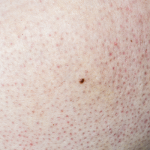With so many dangers in the world to protect our children from, many parents overlook the dangers of the sun’s rays. Those rays can cause serious damage to the susceptible skin of an infant. Even getting one blistering sunburn now can almost double the infant’s likelihood of developing melanoma later in life. Many take to sunscreen as a form of protection. However, according to medical professionals, there are a few things that you should know before applying sunscreen to your infant. Here, we highlight everything you need to know about infant sun protection.
Is it okay to apply sunscreen to an infant?
It is okay to put sunscreen on your child – for the most part, as long as you’ve ensured that the sunscreen is entirely safe. There are multiple ways to do so, starting with using a sunscreen meant for babies. Most sunscreen for adults will be far too strong for an infant’s skin, so we want to avoid those.
In addition to that, the sunscreen should be free of titanium dioxide and zinc oxide to avoid rashes. And while you’re looking, aim for a broad-spectrum sunscreen with an SPF of 30 to 50.
Also, avoid sunscreens with insect repellents in them. They’re often less effective.
Next, never immediately apply the baby-safe sunscreen to all parts of your child. Instead, buy the sunscreen a few days before your outing, then use a small amount on one part of your child’s body and monitor that part to ensure no rash develops. If it seems safe, then you’re okay to use it. In the case that a rash does develop, contact your doctor right away and ask for other options.
When should I put sunscreen on an infant?
Exactly when you should apply sunscreen on a child mostly depends on their age.
If the child is a newborn or under six months of age, you should ideally keep them in the shade at all times and avoid the use of sunscreen. However, when that isn’t an option, you should apply sunscreen before bringing them into direct sunlight – just be sure that you follow the directions above when doing so.
How to keep infants safe from the sun
If your baby develops a rash or you feel uncomfortable using sunscreen on them for other reasons, you should stop using it immediately. But, that doesn’t mean that your child should be left unprotected from the sun.
Luckily, there are a few ways that you can still keep your child safe without using sunscreen.
Follow these tips to protect infants from the sun:
As we said, you should ideally keep your child in the shade – especially if they’re younger than six months old. If you can’t find a shady spot under a building or tree, you can create your own shade using an umbrella or stroller.
Use the right protective clothing for your infant. When going outside on a sunny day, you need to ensure your infant is dressed in lightweight, long-sleeved clothing – both shirts and pants. In addition to the shirts and pants, give them a sun hat and sunglasses if possible.
Reapply the sunscreen. Immediately following swimming or sweating, you should reapply the sunscreen quickly – even if it says waterproof. If you haven’t done either of those, you should still reapply after two or more hours.
Keep them hydrated and cool. In addition to the harm of direct sun exposure, infants are also susceptible to the heat of hot summer days. So, be sure to keep them well hydrated and cool with the use of fans or damp clothes.
How to treat sunburn on an infant
If all else fails, and your child still develops a slightly red sunburn, you can treat it yourself, as long as you do it with care.
To start, you can try to use cold compresses or bathe the infant in some cool water. Next, to help with the pain, you may be able to use acetaminophen. Just remember to check the package for details on the appropriate dosage. And in time, it should clear up.
If the sunburn is more severe and causes blisters, fever or chills, you need to contact a doctor right away, as that level of sunburn needs to be treated similar to any other severe skin burn.
Infant sun protection
In conclusion, while sunscreen is mostly safe to use on infants, you should avoid doing so unless it’s needed.
Instead of sunscreen, simply keep them out of direct sunlight – overall, that presents much less danger. For any further questions or concerns about protecting your baby from the sun, contact us today.






